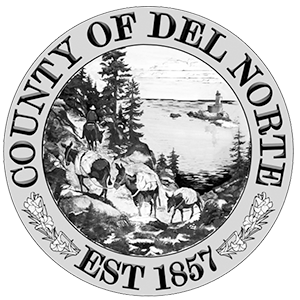Childhood Lead Poisoning Prevention Program (CLPPP)
The CLPPP monitors the status of lead levels for children in Del Norte County and provides outreach and education to the community about the effects of lead and how to prevent exposure to lead. When necessary, nurses also provide case management in the event of a lead poisoned child.
.png)
Worried about lead? Use this checklist to see your risk!
Why Is Lead Dangerous?
- Lead can harm a child's brain. Lead poisoning can make it hard for a child to learn, pay attention, and behave.
- If you are pregnant, lead can hurt your baby. Ask your doctor about a lead test.
How Do Children Get Exposed to Lead?
- Children under 6 exhibit a lot of hand to mouth contact.
- Children put an item in their mouth that contains lead or has lead dust on it, such as hands, toys or food.
- Children can breathe in lead dust.
When Should Children Get Tested for Lead?
- Most children who have lead poisoning do not look or act sick.
- The only way to know if your child has lead poisoning is for your child to get a blood test.
- Children in California on a publicly funded program such as CHDP, Medi-Cal, and WIC are tested for lead at 12 and 24 months of age. Some children over age 2 also need to get tested.
Where Can I Get Children Get Tested for Lead?
.png)
Does a Healthy Diet Help?
The foods we prepare and serve to our families can help limit the absorption of lead. These steps you can take when choosing and preparing food can make a difference:
- Provide regular meals and snacks. A poor diet or an empty stomach can encourage absorption of lead.
- Choose a range of nutrient-dense food for overall health and to help make sure your child has enough iron, calcium and vitamin C in their body. These foods can help prevent lead from being absorbed into the body and help reduce your child's lead level:
- Vitamin C rich foods- oranges, tomatoes, limes, bell peppers, berries, papaya, jicama or broccoli
- Iron-rich foods- beef, chicken, turkey, eggs, cooked dried beans, fortified cereals, tofu, collards, kale and mustard greens
- Calcium-rich foods- low-fat milk, yogurt, cheese, calcium-fortified juices and cereals and dark leafy greens
- When preparing food, be sure to wash and cook with safe water. Use only cold tap water for drinking, cooking and making food or baby formula.
- Do not allow your child to eat food that has fallen on the floor.
- Do not use home remedies that contain lead on your child.
Learn More:
- Protecting Children from Lead
- Sources of Lead
- Nutrition
- Screening for Lead
- Housing-Related Information
- Occupational Information
To speak to someone regarding symptoms or effects of lead poisoning, contact our CLPPP program at (707) 464-0861. For questions regarding hazards in housing, contact Environmental Health at (707) 465-0426.
| Social Services Branch | Public Assistance / Employment & Training Branch |
|
880 Northcrest Drive
Crescent City, CA 95531
Phone (707) 464-3191
Fax (707) 465-1783
|
880 Northcrest Drive
Crescent City, CA 95531
Phone (707) 464-3191
Fax (707) 465-1783
|
|
Behavioral Health Branch
|
Public Health Branch
|
| 455 K Street Crescent City, CA 95531 (707) 464-7224 (800) 446-4408 (toll free) |
400 L Street
Crescent City, CA 95531
Phone (707) 464-0861
Fax (707) 465-6701
|

